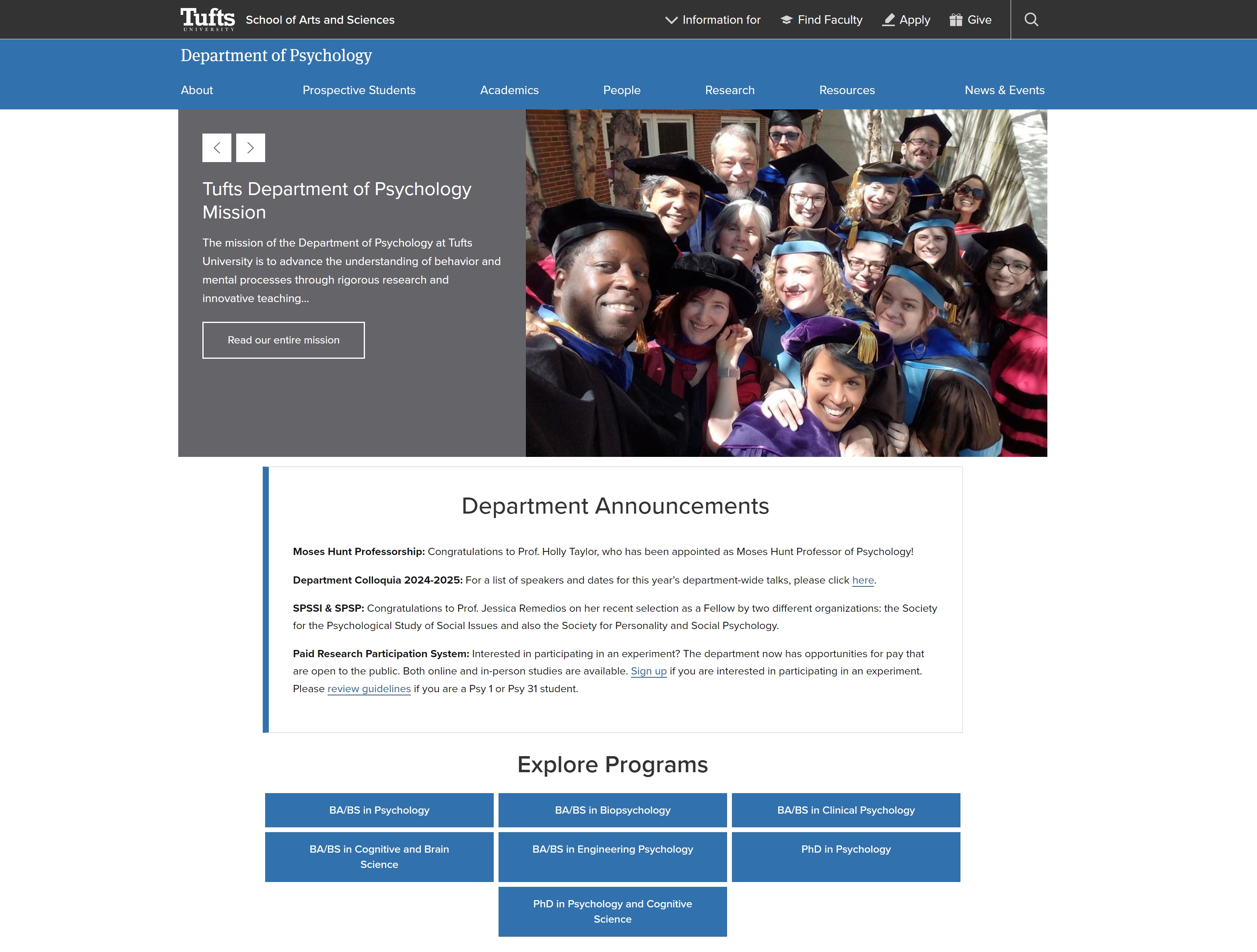
Vanderbilt University Department of Psychology
Vanderbilt Psychology - Unraveling the Human Brain and Behavior. To understand psychology is to understand the human brain, human behavior, and human cognitive processes—essentially, the key to how we think, act, and feel. Under the guidance of faculty renowned for their expertise in clinical psychology, cognition, and neuroscience, students pursue careers as therapists, data scientists in life sciences, policy makers, university professors, and many other fields that rely on deep knowledge of psychology and neuroscience

Detailed Introduction
Delve into the study of psychology at Vanderbilt University, where understanding the human brain, behavior, and cognitive processes is at the core. Under the guidance of faculty members, including those in the National Academy of Sciences, our students pursue diverse careers in therapy, life sciences, policy-making, academia, and beyond. Ranked 11th nationwide by University HQ, our department is committed to equal opportunity and excellence in educational policies and programs.
MoreUniversity

City University of Hong Kong Department of Psychology
Psychology at CityU integrates the study of the brain, mind, and behavior to address complex human behavior issues.

Department of Psychology, University of Copenhagen
The Department of Psychology at the University of Copenhagen is engaged in research and teaching in the field of psychology. The department explores topics such as memory and concentration problems in people with bipolar disorder and the role of neuroplasticity in cognitive disorders. Professor Kamilla Miskowiak is leading projects supported by the Independent Research Fund Denmark.

Tufts University Department of Psychology
The Department of Psychology at Tufts University conducts cutting-edge research aimed at understanding the causes and consequences of mental processes and behavior. Our work addresses social, cognitive, and neural levels of analysis. We are innovative and interdisciplinary in our approach and emphasize understanding phenomena that have a direct impact on society. Scientists at all levels - faculty, postdoctoral trainees, and graduate and undergraduate students - engage in collaborative scholarship and critical thinking in the classroom and in the laboratory. This synthesis, between research and teaching, positions us to ask and answer fundamental questions while also enriching our students' understanding of psychology.